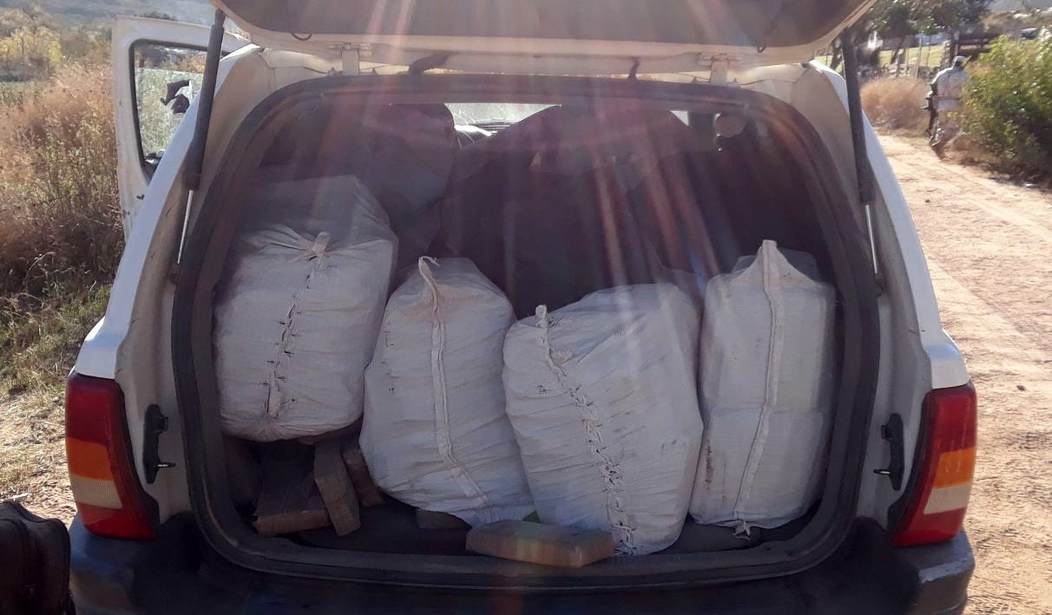WASHINGTON — Terrorists could weaponize an opioid that can be so dangerous in tiny doses that emergency personnel responding to America’s growing epidemic of overdose cases are put at risk, officials told Congress.
Fentanyl is a synthetic opioid that generally is highly potent, says the Drug Enforcement Administration.
“In recent years they have become more widely available in the United States and grown as a threat to public safety. It only takes a very small amount of fentanyl or its derivatives — which can be inhaled or absorbed through the skin or mucus membranes (such as being inhaled through the nose or mouth) — to result in severe adverse reactions,” the DEA says. “As a consequence, not only are users exposed to danger, but so are others who encounter them including the general public, first responders, and law enforcement.”
The National Center for Health Statistics reported at the end of last year that 2016 saw 63,600 drug overdose deaths in the United States, a new record. More than 20,000 of deaths were attributed to fentanyl, while heroin accounted for 15,000 deaths and prescription opioids caused 14,500 deaths.
As little as two milligrams is a lethal dosage for most people, according to the DEA.
At a House Appropriations Labor, Health and Human Services, Education and Related Agencies Subcommittee hearing on HHS biodefense oversight last week, Rep. Chuck Fleischmann (R-Tenn.) noted a recent hearing where it was noted that a U.S. government seizure of carfentanyl contained enough product to kill a billion people.
“Obviously, we’ve been focused on the opioid issue for the danger it presents to public health. But I’ve quickly realized that synthetic opioids could be utilized as a chemical weapon,” Fleischmann said. “Indeed, it’s believed that Russians deployed synthetic opioids as a riot control agent in the 2002 Moscow theater hostage crisis, with heavy civilian casualties.”
“Is there a reason to fear, for Congress to fear, that organizations seeking to do us harm could be looking at these substances as possible chemical weapons?” he asked testifying officials. “And if so, do you all have any recommendations on confronting this challenge?”
Assistant HHS Secretary for Preparedness and Response Robert Kaldec replied that “yes, there is a concern.”
“There’s more detail that could be provided in a classified setting that I’m happy to provide,” he added.
Kaldec noted that Homeland Security Secretary Kirstjen Nielsen recently designated fentanyl “as a material threat to our national security.”
“And our expectation with [Biomedical Advanced Research and Development Authority] is is that we’ll be researching. We’ve done already some market surveys to see what is available out there already in the pipeline,” he said.
Rep. Mark Pocan (D-Wis.) also asked about fentanyl and “how it could be weaponized as an opioid and perhaps used by terrorists and others.”
“I just, you know, hope also that we’re working with — across agencies, DHS, FDA and others who are working on this issue, because clearly, it’s of concern to a number of us,” the congressman said.
Kaldec said agencies are also collaborating with the Department of Defense as “they have a particular interest because it is a national security threat.”
“So we’re hoping to leverage as we’re doing in other areas with the Department of Defense a lot of their unique capabilities and a lot of their research and really trying to forge a closer partnership,” he said. “So we can benefit from the things that they’re doing that now are more relevant to what we’re doing in terms of addressing some of the threats that we look forward to in the not-too-distant future.”
Dr. Anthony S. Fauci, director of the National Institute of Allergy and Infectious Diseases,
said National Institutes of Health research is going toward “some of the countermeasures that you need if you’re dealing with fentanyl in an entirely different setting than we generally see it with overdoses and with the natural addictions.”
“So it’s really, I think, a classic example of how efforts in one area indirectly and sometimes directly benefits another area,” Fauci added.









Join the conversation as a VIP Member